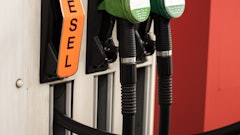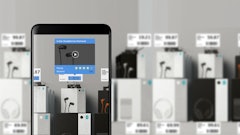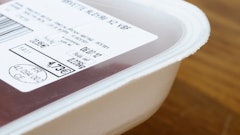At the behest of Wal-Mart Stores, Coca-Cola Enterprises (CCE), which is responsible for three-quarters of all the Coca-Cola products bottled, sold and distributed in the United States, began testing a new distribution method last month.
CCE began shipping bottles of Powerade sports drink to a Wal-Mart warehouse in Texas and expects to broaden the process to include other Wal-Mart warehouses.
The move has already drawn lawsuits from independent bottlers who contend that the move violates their contract rights with the Coca-Cola Co.
“This particular buyer is used to dealing with a warehouse environment,” explains Terry Marks, president of CCE operations in North America. “This enables them to better plan for the category on a full-year basis.”
For CCE, the test with Wal-Mart represents a break from the long-standing tradition of direct-store delivery, a staple in the beverage industry. The company “continues to test alternative distribution methods, including warehouse delivery for certain products, to make certain that we are fully utilizing our systems to service our customers and build our brands,” according to Marks.
“We are certainly open-minded and don’t want to be constrained by how we have always done things,” he says.
Based on preliminary results, CCE is now looking to expand the program to other Wal-Mart warehouses in the second quarter of this year. It points out, however, that it has no immediate plans to expand the program beyond the Powerade line or to other retailers.
Company officials also note that they have no plans of abandoning DSD. “We look at the warehouse route to market and DSD as both offering different value,” Marks says. “We are committed to DSD, but we also feel that we need to broaden our perspective on other options as well.”
A group of approximately 50 Coca-Cola bottlers filed suit in Springfield, MO, seeking to guarantee that the company does not abandon DSD and asking the court to issue a preliminary injunction stopping CCE’s Powerade warehouse delivery plans. A similar suit was filed in Birmingham, AL, by an additional group of bottlers, bringing the total number of bottlers involved to nearly 60.
Taking Legal Action
The suits, the first major legal actions by a majority of independent Coca-Cola bottlers as a group against The Coca-Cola Co. in more than 80 years, contend that an agreement negotiated in 1994 between the bottlers and the company specifically prohibits warehouse delivery of Powerade to retailers like Wal-Mart.
“The plans for a large scale rollout of warehouse delivery of Powerade fundamentally alters the system that has made Coca-Cola the most recognized global icon and one of the world’s most valuable brands,” says Claude Nielsen, chairman, president and CEO of Coca-Cola United Bottling Co., Birmingham, AL, the third largest Coca-Cola bottler in the United States.
Nielsen said the bottlers and The Coca-Cola Co. have worked for months to come to an acceptable resolution of the issue of Powerade warehouse delivery. “Unfortunately, despite our best efforts, we have not been able to reach a solution with either the company or CCE and we are left with no alternative but to initiate legal action,” he says.
The bottlers are also concerned that the warehouse delivery of Powerade violates the principles that underlie their perpetual contracts with The Coca-Cola Co. Throughout their 100-year history, bottlers have served all of their customers directly, by using their own employees and trucks to deliver product to store shelves within their exclusive territories.
“All Coca-Cola bottlers, first and foremost, seek to provide the best and most reliable service we can for our customers,” says Edwin Rice, chairman and CEO of Ozarks Coca-Cola Bottling in Springfield, which saw its Powerade volume grow by 121 percent in Wal-Mart stores in its territory in 2005. “Regrettably, this action involves one of our most valued and largest customers. It is our commitment to provide Wal-Mart with excellent service and local promotional activity that will continue to build the Powerade brand.
“We believe that DSD continues to provide retailers, both large and small, with the most efficient and effective distribution of Coca-Cola products,” says Rice. “We believe the ultimate success measure for retailers is increasing Powerade sales, which is more a matter of operational performance on the part of the bottler than warehouse delivery.”
The Coca-Cola Co. fired back at the bottlers, saying it was “extremely disappointed.”
“These suits are actions against our consumers and our customers,” says Don Knauss, president of Coca-Cola North America. “The actions by bottlers who represent approximately 10 percent of our company’s U.S. volume would greatly hamper the Coca-Cola system from competing with other sports drink brands, and that does a great disservice to the system, its people and its consumers.
















